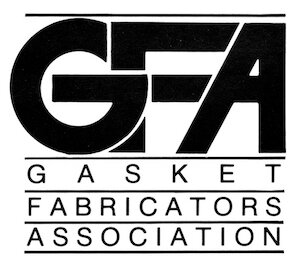FDA silicone refers to products that comply with the regulations set forth by the United States Food and Drug Administration (FDA). These regulations govern the safe use of silicone-based items in medical, pharmaceutical, food, and beverage applications. They also guarantee that the materials are non-toxic, chemically inert, and do not impart harmful substances into the products.
This article will explore the importance of FDA-approved silicone in various industries and the specific regulations and standards it must meet.
Significance of FDA Silicone Across Industries
FDA-approved silicone is pivotal across various industries due to its exceptional properties and adherence to stringent regulatory standards. In the food and beverage industry, this material is important to ensure the safety and quality of products. Its non-toxic nature prevents contamination and maintains the integrity of various food items, from processing equipment to packaging materials.
Using FDA silicone is also imperative in the pharmaceutical and medical sectors to uphold patient safety and regulatory compliance. Its exceptional biocompatibility, sterility, and resistance to chemical degradation make it indispensable in implants, catheters, and tubing. They are designed to be in direct contact with the human body for prolonged periods.
Furthermore, FDA silicone finds applications in various consumer products, from personal care items to industrial machinery. Its versatility and safety profile make it preferable for goods like baby bottle tubes, kitchen utensils, and automotive components. Manufacturers can instill consumer confidence regarding product safety by selecting this material for such applications.
FDA Regulations and Standards for Silicone Products
Compliance with the following regulations and standards is essential for silicone product manufacturers to ensure safety, effectiveness, and regulatory approval:
21 CFR Part 177
This regulation outlines the requirements for polymers including silicone intended for use in contact with food. It specifies permissible additives, maximum extractable levels, and overall safety criteria to prevent the migration of harmful substances into food.
USP Class VI
The United States Pharmacopeia (USP) Class VI standard applies to materials used in medical and pharmaceutical devices. Silicone products must meet cytotoxicity, sensitization, and systemic toxicity assessments to ensure they are safe for medical use.
ISO 10993
This international standard provides guidelines for evaluating the biological safety of medical devices, including silicone-based components. It encompasses various tests such as irritation, genotoxicity, and implantation tests to assess the compatibility of silicone materials with the human body.
ISO 9001 and ISO 13485
While not specific to silicone products, these quality management standards are relevant for producers of medical devices and pharmaceutical products incorporating silicone. Compliance with ISO 9001 ensures consistent quality control processes, whereas ISO 13485 focuses on meeting regulatory requirements for medical device manufacturing.
ISO 14971
This standard specifies requirements for risk management of medical devices, including those containing silicone. It entails identifying and mitigating hazards associated with silicone components, ensuring that risks are minimized.
FDA 510(k) Clearance
This process evaluates the safety and effectiveness of new medical devices compared to existing products. It ensures that silicone components meet regulatory requirements before being marketed in the United States.
FDA Master Files
Manufacturers may submit Master Files to the FDA containing confidential information about silicone materials’ safety, composition, and processing. These documents can streamline the regulatory review process for companies utilizing silicone product components.
Partner With ElastaPro Silicone Sheeting for Your Silicone Needs
At ElastaPro Silicone Sheeting, we offer high-quality silicone products and services tailored to meet global clients’ diverse needs! Our extensive portfolio spans industries including healthcare, automotive, electronics, and beyond catering to a wide array of applications and requirements. We also adhere to stringent quality control measures throughout our manufacturing process.
Contact us today to learn more about our solutions!

